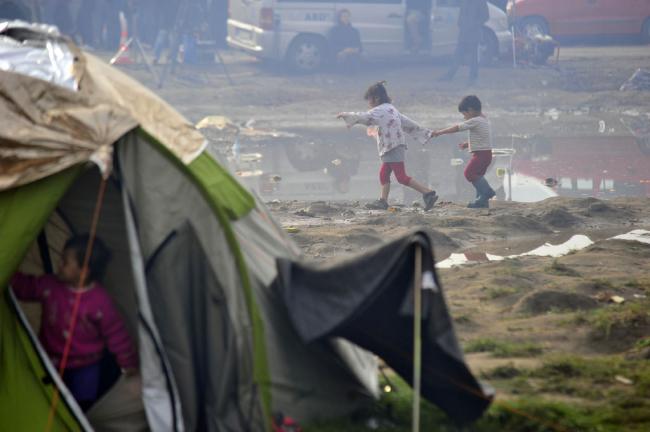
UN refugee agency redefines role in Greece as EU-Turkey deal comes into effect
Till now, the Office of UN High Commissioner for Refugees (UNHCR) has been supporting the authorities in the so-called “hotspots” on the Greek islands, where refugees and migrants were received, assisted, and registered. Under the EU-Turkey deal, which came into effect this past Sunday, these sites have now become detention facilities, and all new “irregular” migrants crossing from Turkey into Greek islands will be returned to Turkey.
UNHCR has a policy on opposing mandatory detention. Accordingly, it has suspended some of activities at all closed centres on the islands, including provision of transport to and from these sites.
“UNHCR is not a party to the EU-Turkey deal, nor will we be involved in returns or detention,” the agency said in a press release. “We will continue to assist the Greek authorities to develop an adequate reception capacity.”
UNHCR's new role in Greece
Going forward, UNHCR will focus on protection monitoring to ensure that refugee and human rights standards are upheld, and provide information on the rights and procedures to seek asylum.
UNHCR staff are identifying people with specific needs and will continue to be present at the shoreline and sea port to provide life-saving assistance, including transport to hospitals where needed. They are counselling new arrivals on asylum in Greece, including on family reunification and on access to services.
UNHCR expressed concern that the EU-Turkey deal is being implemented before the required safeguards are in place in Greece, noting that Greece does not have sufficient capacity on the islands for assessing asylum claims, nor the proper conditions to accommodate people decently and safely pending an examination of their cases.
The Greek authorities have already separated an estimated 8,000 refugees and migrants who had arrived on the islands before 20 March from people arriving after that date and therefore will be subject to the new return policy.
Uncertainty is making the new arrivals nervous, the agency said. Many still hope that the border will open. Many have run out of money.
There is also an urgent need for information. The Greek police have been distributing leaflets in Arabic and Persian informing people that the border is closed and advising them to go to camps where better conditions are provided. But the capacity of nearby camps has been reached, and more camps need to be opened including for candidates for relocation.
Photo: UNICEF/UN012804/Georgiev
Support Our Journalism
We cannot do without you.. your contribution supports unbiased journalism
IBNS is not driven by any ism- not wokeism, not racism, not skewed secularism, not hyper right-wing or left liberal ideals, nor by any hardline religious beliefs or hyper nationalism. We want to serve you good old objective news, as they are. We do not judge or preach. We let people decide for themselves. We only try to present factual and well-sourced news.







